Behind the Mirrored Glass with Chew Lab’s Adam Melonas
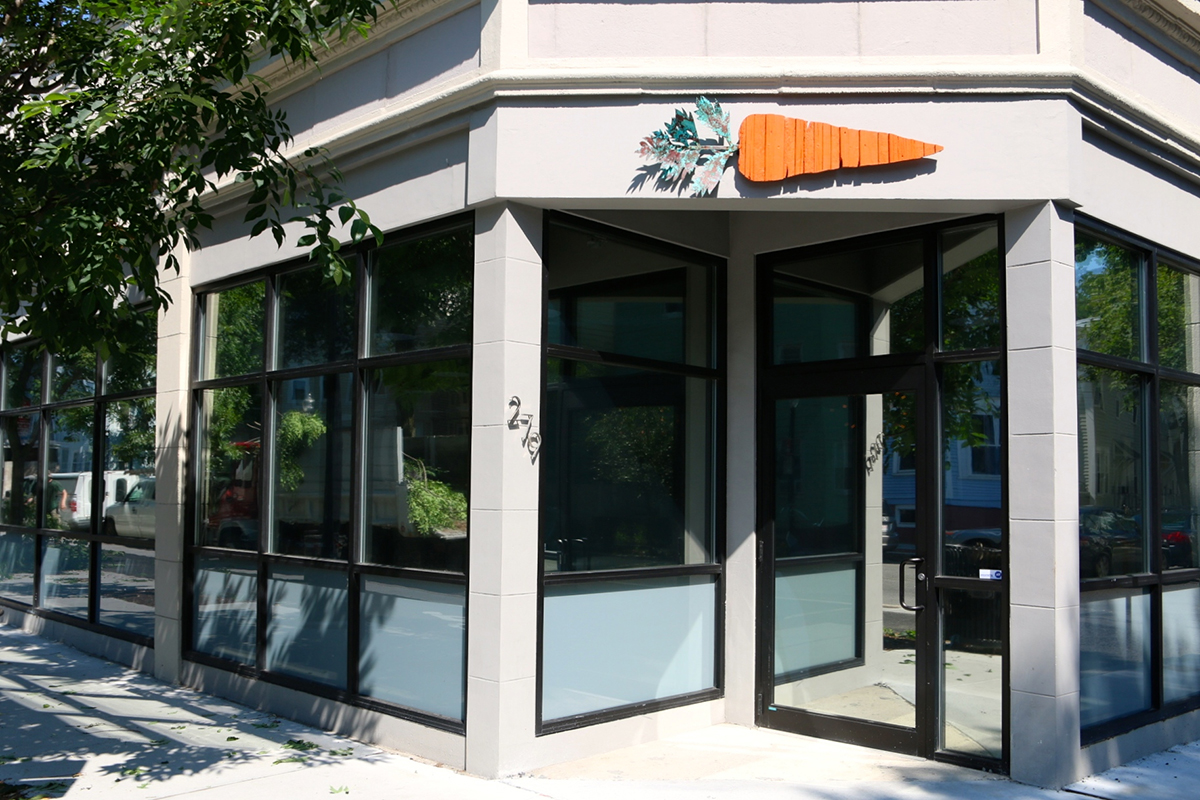
Chew Lab’s exterior. All photos by Emily Phares
The mirrored windows were installed to keep people outside from peering in, but the door is left unlocked. So when curious passers-by—undoubtedly lured by the large carrot above the door—walk into Chew Lab on Western Avenue near Central Square, they discover a beautiful test kitchen complete with whirring blenders, white-coat clad food scientists, and shiny metal tables piled high with unique ingredients.
Adam Melonas, Chew Lab’s founder and CEO, spent nearly two decades working in restaurants in Dubai, Shanghai, London, Australia, and Spain, but he’s quick to note that Chew Lab is not a restaurant. It’s a food lab. Here, together with chefs and scientists, Melonas formulates sustainably sourced food products designed to combat obesity. And while Chew Lab is building its own brands, Melonas currently spends most of his time helping some of the biggest food and beverage companies in the world create healthier products for consumers.
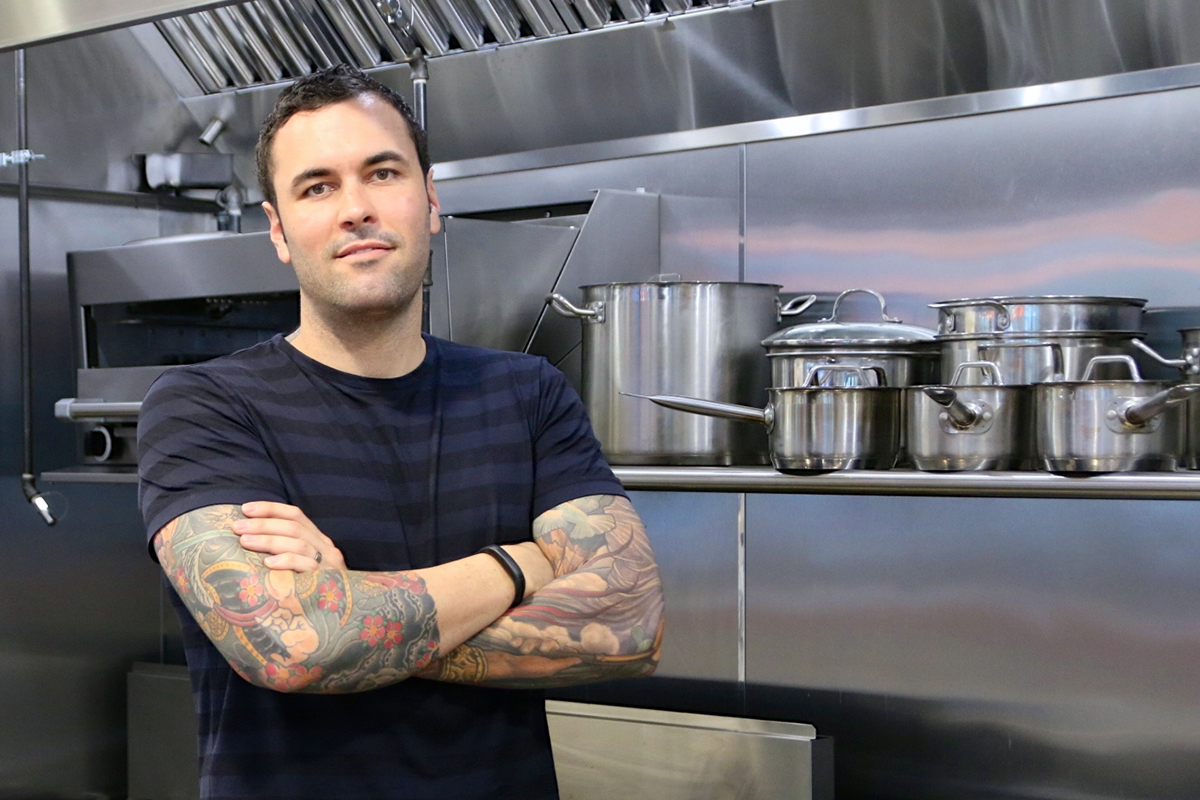
Adam Melonas. Photo by Emily Phares.
“The work we do is super confidential,” Melonas says. “The reason I like to stay behind the curtains is that these large companies we partner with have very loyal followings, and it’s difficult to explain that they’ve made these products that are better for you in partnership with this company that you’ve never heard of. I’m very happy to stay behind the scenes. We’re hoping that the effects of our work here are felt worldwide, so that’s enough praise for us.”
We spoke to Melonas about some of his new items (prickly pear water, anyone?), saving the population from sugar, and the one thing he thinks Michael Pollan gets wrong.
There’s a growing trend of chefs championing healthy lifestyles. You share their passion but have said you’re irritated with the way people are doing things. For example, you dislike the farm to table concept. Why is your strategy better?
The thing I dislike most about the farm to table movement is the notion that it’s a new trend. Cooking has always been about finding the best possible ingredient; the one that tastes the best, produced the best. That’s the closest possible ingredient. That’s just being a chef.
How much time do you spend cultivating partnerships versus creating your own products?
We’re building new brands of our own, but right now most of our work entails partnering with large companies. Many of these large companies have worked with chef-only innovation organizations, which generally make food that tastes great but it’s difficult for the client to translate that to a production setting. We have an interdisciplinary approach. In every project we have cross-functional teams made up of food scientists, product developers, and chefs. We need those different points of view.
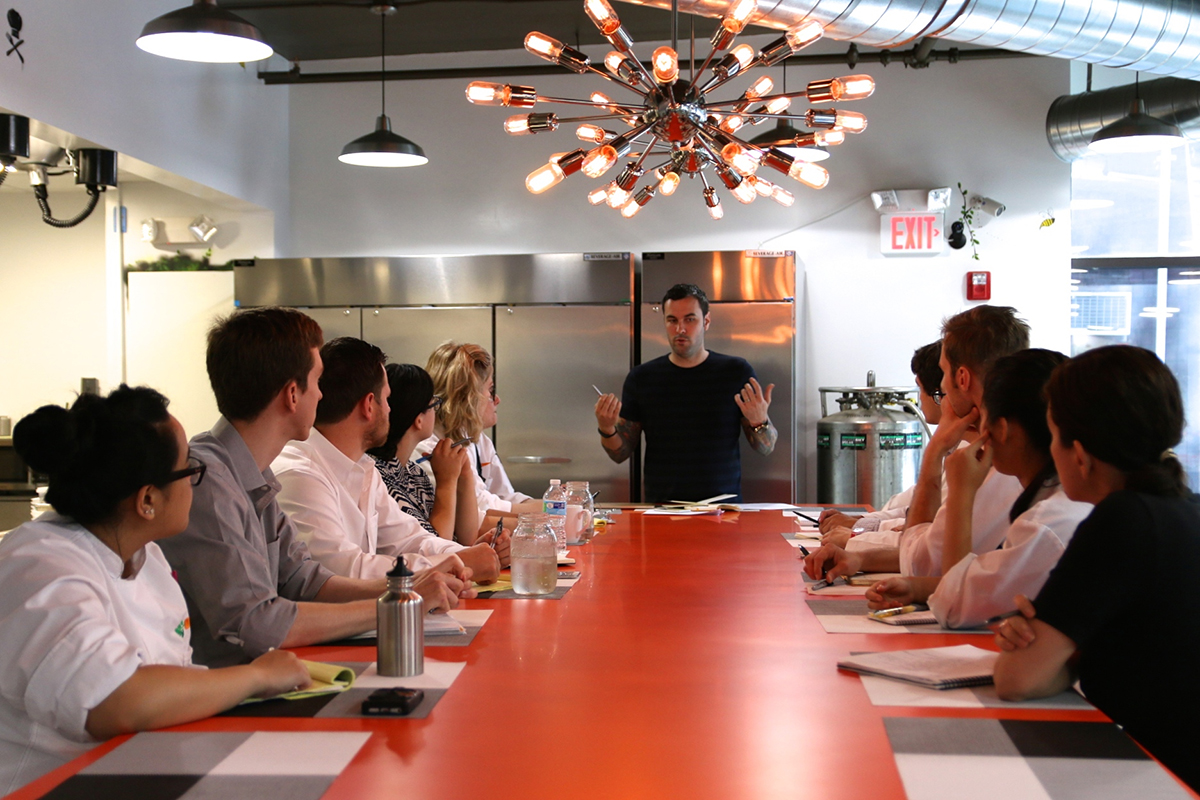
Chefs and scientists at work. Photo by Emily Phares.
Do you plan to eventually shift that balance to devote more time to product creation?
Our objective is always to play to the biggest audience. We work with some of the largest food and beverage companies in the world because it’s a profound way to have a massive impact. For example, we can quantify on a daily basis the metric tons of sugar that we’re saving the population.
What kinds of food can we expect from Chew Lab, and when?
By next year, with many of our clients, we should be in spaces creating better options for breakfast. And a big part of what we do is about snacks, so there should be a whole host of different snack food products on the market next year that have our fingers all over them. Not literally, obviously.
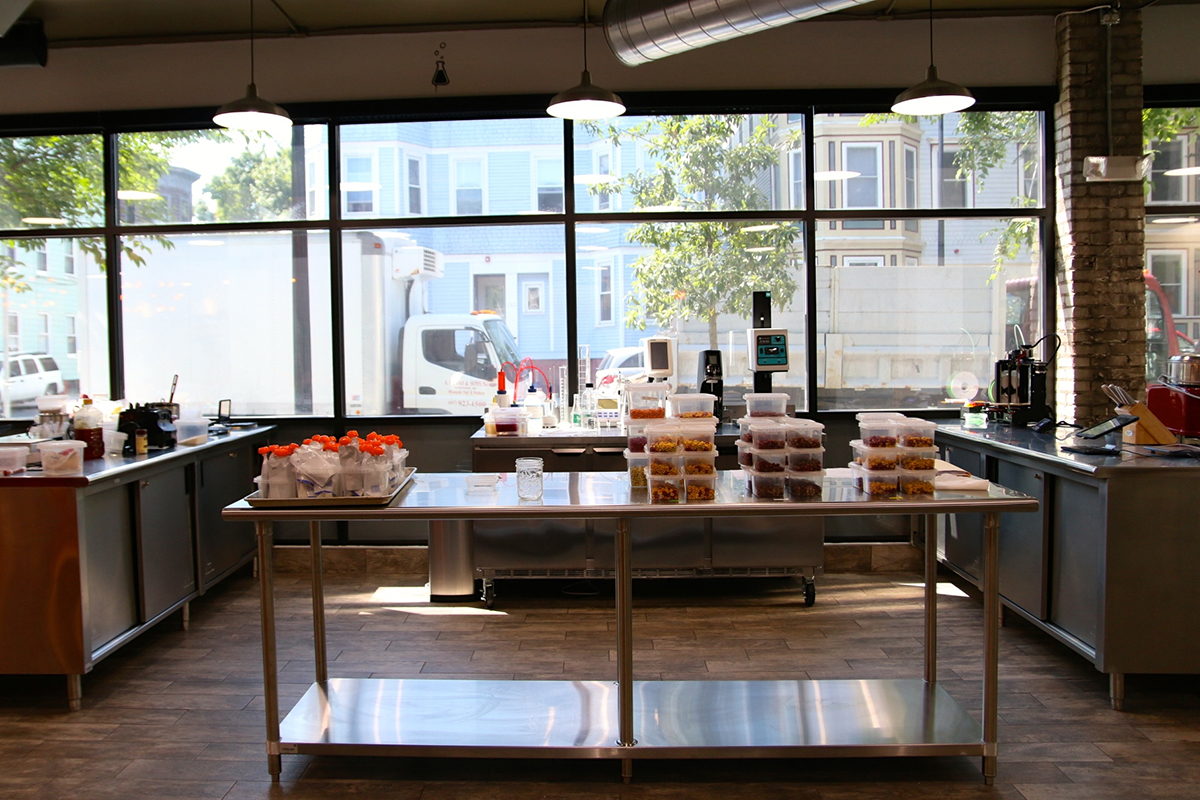
The view looking out. Photo by Emily Phares.
In addition to the food products you help create for other companies, what is the first Chew Lab product that’s heading to market?
The second part of our company is the brands that we create. The first of those brands is a beverage company we’re actually creating right now, which will be in the marketplace by Q1 of next year. The new company is all about prickly pear water, and this is being done in partnership with IDEO.
There are different ways of measuring a food’s sustainability. You can look at greenhouse gas emissions, water footprint, or pesticide use, to name a few. When creating your products how do you determine which ingredients are most sustainable?
There’s no scientific process for that, it’s about making a decision about whether the production of this particular item makes the world a better place or a worse place, or has a neutral effect. I’ll give you an example, which is palm oil production. There are people growing this product with the worst, most obscene practices you can imagine. I ended up finding the world’s most sustainable source of palm oil, in northern Brazil, where the majority of the land is a natural rainforest reserve and they’re reforesting part of the land. So we look at how a particular ingredient is produced and ask ourselves if that’s a producer we want to support.
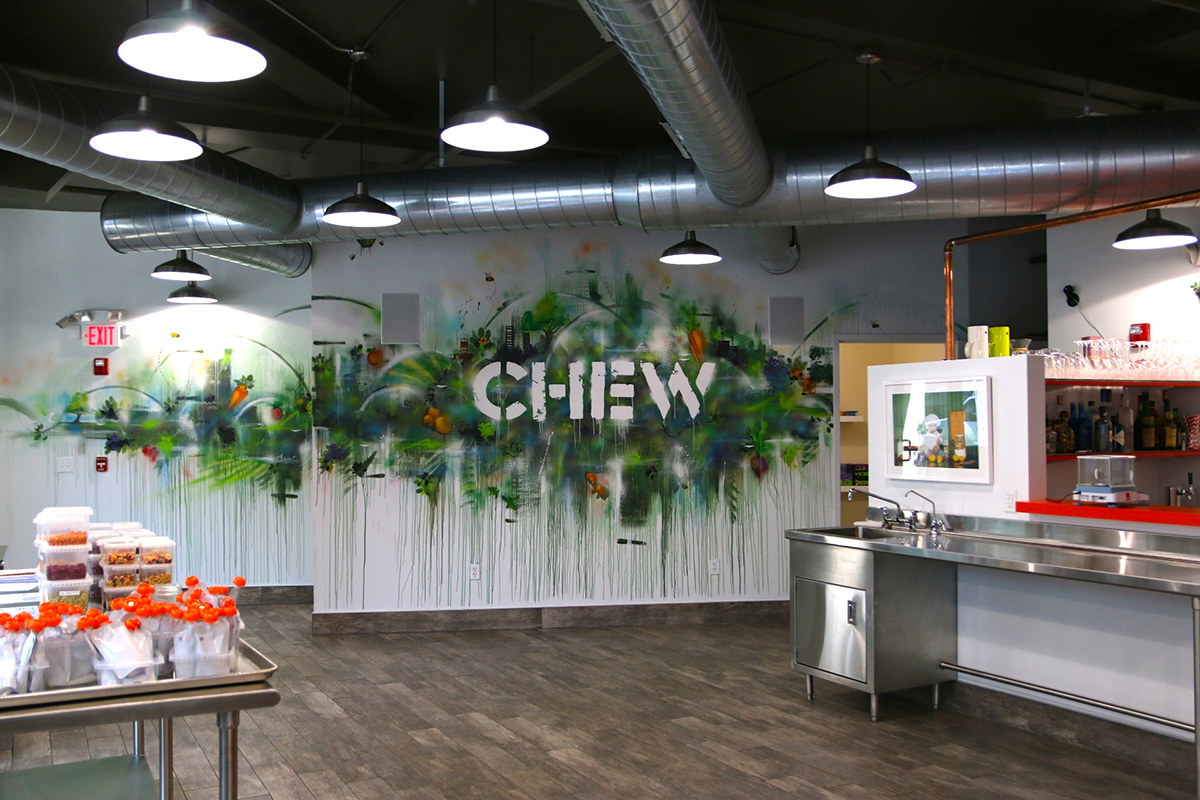
Interior. Photo by Emily Phares.
Healthy eating is hard to define. Some people count calories, others limit certain foods, and many people embrace simple messages like Michael Pollan’s “Eat food, not a lot, mostly plants.” What’s the reigning food philosophy at Chew Lab when it comes to health?
I think one of the things that Michael Pollan says that is quite damaging is that if you pick up a product and it has more than five ingredients, put it down. The danger there is that in order to get five ingredients or less, it’s a pipe dream. Chocolate itself, for example, has more than five ingredients and each and every one is incredibly natural. Yes, it’s got more than five ingredients, but does that make it bad?
How will your creations differ from the other health food products out there?
When we create our products, we hold ourselves to a very high standard of what would we feed to our own family. That’s the most black and white way you can look at food.
279 Western Ave., Cambridge, chew-lab.com


